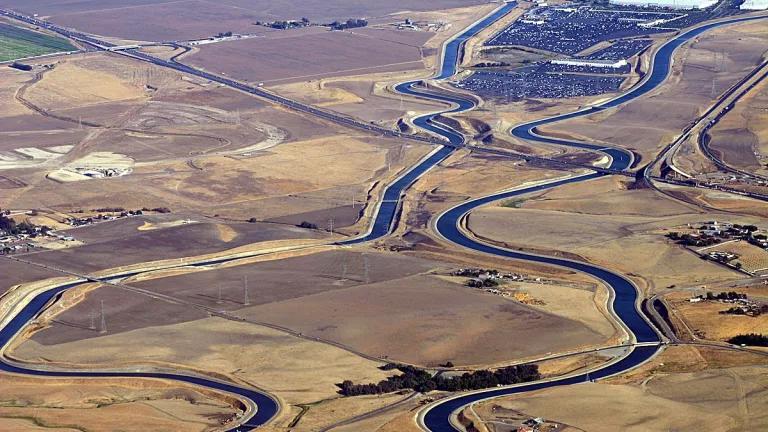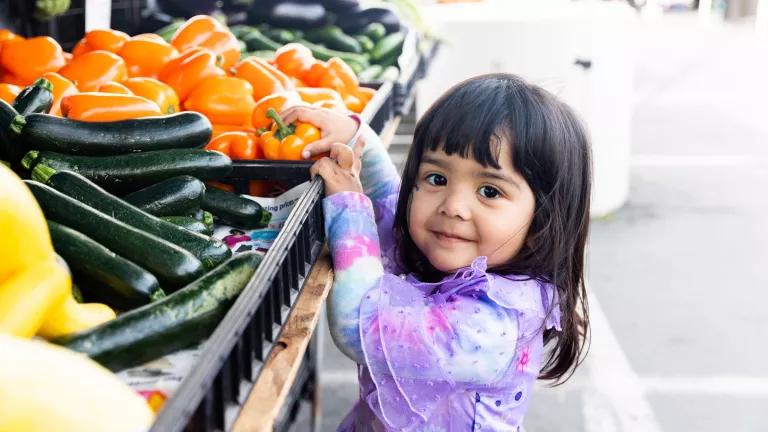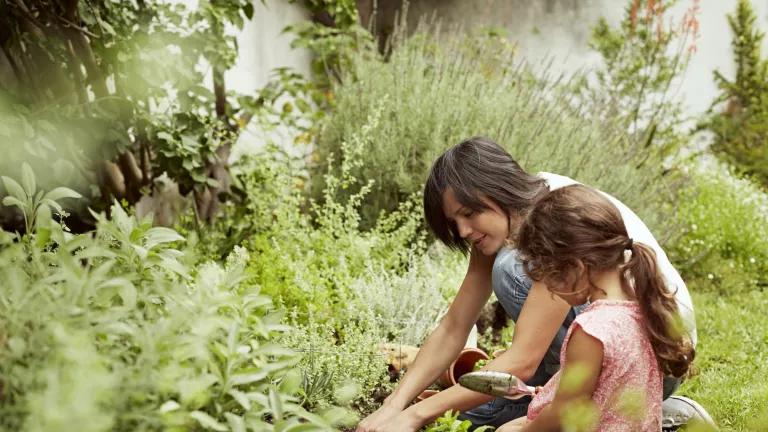Food Waste Lessons from Milan
A core tenet of NRDC’s Food Matters project is to foster a food waste knowledge sharing network among cities—we believe that with the support of peer cities doing similar work, overcoming similar hurdles, cities will continue to lead the fight against food waste. As part of Food Matters, NRDC partners closely with two model cities, Baltimore and Denver, to drive dramatic policy and programmatic change around food waste, in addition to partnering with a network of cities to deploy catalytic tools developed by NRDC to kickstart work or deepen existing work around food waste.
The City of Milan, a hub for food systems work, is a pioneer city working towards achieving Sustainable Development Goal 12.3—to cut 50% of its food waste by 2030. From its citywide household food waste collection program, to its robust network of non-profits rescuing food and delivering it to people’s plates, Milan is a wonderful example of a European city taking key steps to addressing food waste. Milan is also the birthplace of the Milan Urban Food Policy Pact, an international protocol aimed at tackling food-related issues at the urban level. To date, 184 cities across the world have committed to the Pact, which includes actions spanning sustainable diets and nutrition, to food supply and distribution to food waste like: “Raise awareness of food loss and waste through targeted events and campaigns; identify focal points such as educational institutions, community markets, company shops and other solidarity or circular economy initiatives.”
In June, NRDC will be sending two participants from 5 U.S. cities to attend the Milan Food Matters Study Tour. For 4 days, participants will have the chance to see how the City of Milan has taken a systems approach to make its food system more sustainable. With support from two of the City of Milan’s partners: Novamont, an Italian company which works on the development of a bioeconomy model based on the efficient use of resources, and EStà (Economia e Sostenibilità), an Italian non-profit research center, this tour will put a spotlight on existing and possible urban solutions to prevent food waste, rescue surplus food, and efficiently collect and recycle food scraps. The primary goal of this study tour is to inspire Food Matters City partners, while providing tangible and applicable strategies for food waste reduction in their home cities. Today, after a rigorous application process, we are excited to announce the cities and individuals selected to attend. Keep reading to hear from the cities what they are doing to address food waste, and what they are hoping to learn on the Study Tour. Congratulations!
Baltimore
“Baltimore City adopted the Food Waste and Recovery Strategy in 2018, and Baltimore’s Department of Public Works is in the midst of a long-term master planning process, ‘Less Waste, Better Baltimore.’ With the support of NRDC, Baltimore has been able to significantly increase its capacity to jumpstart actions, convene and support stakeholders in their existing work, and develop implementation plans to reach its goals around food waste reduction. We hope to learn more about the policies that support reducing food waste, and effective models of food waste prevention and recycling that may work in Baltimore.”
—Kristyn Oldendorf, Department of Public Works and Sarah Buzogany, Department of Planning
Columbus
"The City of Columbus and the Solid Waste Authority of Central Ohio (SWACO) are excited to partner in this learning opportunity to explore the successful public-private and collaborative models in Milan that have effectively moved a large metropolitan city from intention to action in food waste prevention. From preventing, rescuing, and recycling, our community has initiated collaborative efforts to effectively address food waste, including the City of Columbus & Franklin County Local Food Action Plan, Sustainable Columbus, and the Central Ohio Food Waste Initiative. We look forward to learning from the successes and challenges of our peers in Milan to support the successful implementation of our local efforts."
—Kyle O'Keefe, Department for Innovation and Programs and Cheryl Lynn Graffagnino, Columbus Public Health
Denver
“The City of Denver is deeply committed to preventing, reducing, and recycling food waste, and has adopted a 2030 goal to reduce residential food waste collected by the city by 57 percent. We’re not only setting goals, we’re making it happen every day by working with local food rescue and donation organizations, helping restaurants get creative with their scraps, and training public health inspectors on donations and expanding citywide composting. We’re hoping to learn from the successes and failures of other city staff and allied groups around the work about how to make significant shifts in the waste management system, as well as cultural shifts leading to individual actions around food waste. We are excited to learn about the great work happening in Milan and how we can take that back and apply it in Denver.”
—Laine Cidlowski, Denver Department of Public Health and Environment and Jolon Clark, Denver City Council
Oakland
"The City of Oakland has been progressive in developing composting capacity utilizing its franchise agreement to build new organics processing and composting facilities. The City of Oakland and StopWaste—in partnership with the rest of the jurisdictions in Alameda County—are now working hard to minimize wasted food through prevention and rescue and composting remaining food waste. We hope to learn how to improve and expand our existing programs for schools, businesses, and residents through innovative and proven solutions in Milan."
—Kelly Schoonmaker, Alameda County Waste Management Authority and Wanda Redic, Oakland Public Works
Phoenix
"The City of Phoenix is focused on maintaining a sustainable, healthy, equitable and thriving local food system and is striving to achieve our 2050 goals of making healthy, affordable food available to everyone. Embedded within this goal is developing a comprehensive plan designed to mitigate food waste and improve food rescue. Reimagine Phoenix is the city's initiative to increase the city's waste diversion rate to 40 percent by 2020 and achieve zero waste by 2050. The City looks forward to learning more about the creative projects, programs, policies and partnerships currently tackling food waste and rescue within Milan and translating these insights into concrete action at home."
—Rosanne Albright, Environmental Health & Sustainability and Joseph Rossell, Public Works Department




